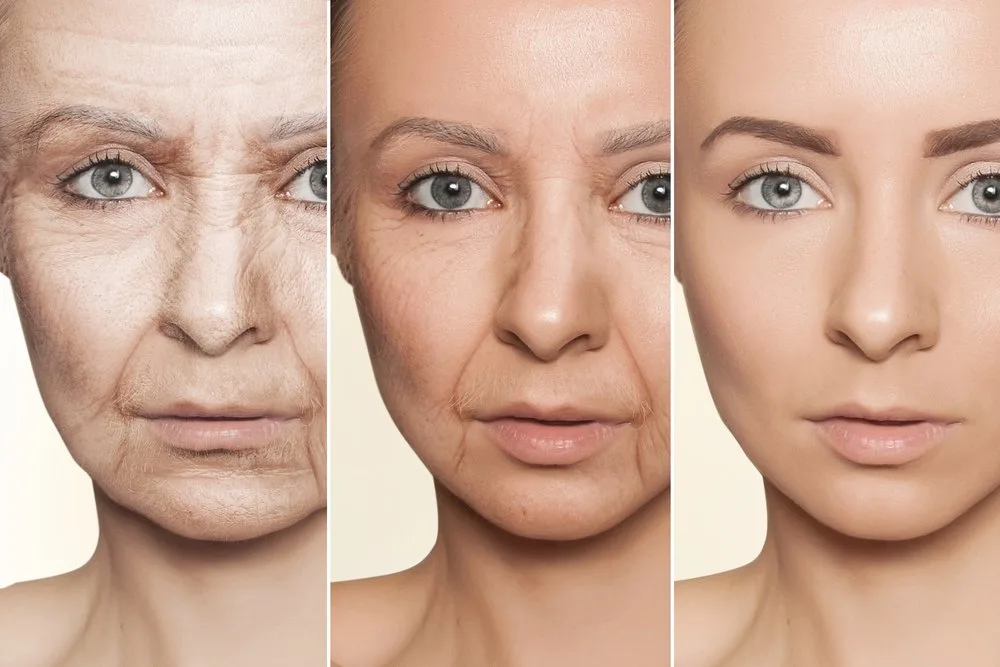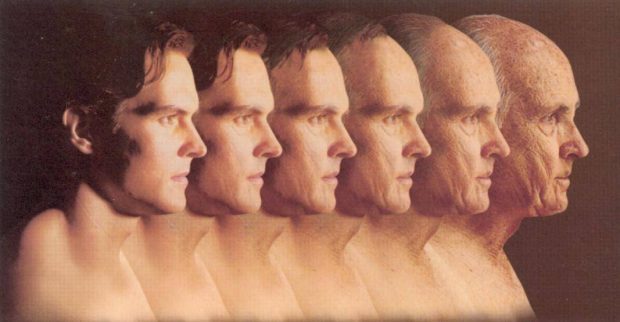We all know that iron is an essential element for virtually all living organisms. However, a recent research study published in Aging, suggests that controlling iron stores is important as iron may age you.
Iron accumulates with aging
Iron accumulates with age; it is associated with many age-related diseases such as cardiovascular disease, cancer, and Alzheimer’s disease; it catalyzes the formation of cellular junk molecules and helps to prevent their turnover; removal of iron from plasma may be rejuvenating; and people with lower levels of body iron – blood donors – have a lower mortality rate.
Iron is an essential element for virtually all living organisms, but its reactivity also makes it potentially harmful. Iron accumulates with aging, and is associated with many age-related diseases; it also shortens the lifespans of several model organisms.
“Blocking iron absorption through drugs or natural products extends lifespan.” – Aging
Many life-extending interventions, such as rapamycin, calorie restriction, and old plasma dilution can be explained by the effects they have on iron absorption, excretion, and metabolism. Control of body iron stores so that they remain in a low normal range may be an important, lifespan and healthspan-extending intervention.
Control your iron stores
Many life-extending interventions, such as rapamycin, calorie restriction, and old plasma dilution can be explained by the effects they have on iron absorption, excretion, and metabolism.
” The control of body iron stores so that they remain in a low normal range may be an important, lifespan- and healthspan-extending intervention.” – Aging
Insulin resistance
Iron is required for the growth of the organism, and iron activates mTOR; iron chelators, chemicals that bind free iron, inhibit mTOR activity. Iron deficiency downregulates mTOR activity. The data fits the paradigm of increased mTOR activity and aging, which may be promoted by excess iron.
The study says, “in turn, mTOR also exerts control over iron metabolism, and the inhibition of mTOR activity by rapamycin leads to inhibition of iron accumulation via the iron-regulating hormone hepcidin.. Transplant patients taking sirolimus (rapamycin) often develop a microcytic anemia, which has been linked to sirolimus-induced iron deficiency.
Excessive activation of mTOR is seen in type 2 diabetes, and this activation is associated with insulin resistance. mTOR activation in diabetes may be responsible for the accumulation of excess iron seen in this illness; alternatively, accumulation of iron might activate mTOR, leading to diabetes. Increased iron stores predict the development of type 2 diabetes, while iron depletion can protect against it.”
“Insulin resistance is associated with inadequate levels of hepcidin, an iron regulatory hormone, which could be expected to increase body iron stores.” – Aging
The study shows evidence that iron increases insulin resistance, and that in turn can lead to higher body iron in a vicious cycle. Since type 2 diabetes is an age-related disease, it can be seen how excess iron promotes aging.
Blocking iron extends lifespan
In experimental organisms and animals, blocking iron extends lifespan. Here are some ways you can block excessive iron:
Autophagy
According to HealthLine, autophagy is the body’s way of cleaning out damaged cells, in order to regenerate newer, healthier cells. They cite Priya Khorana, PhD, in nutrition education from Columbia University.
“Auto” means self and “phagy” means eat. So the literal meaning of autophagy is “self-eating.” It’s also referred to as “self-devouring.” While that may sound like something you never want to happen to your body, it’s actually beneficial to your overall health.
“This is because autophagy is an evolutionary self-preservation mechanism through which the body can remove the dysfunctional cells and recycle parts of them toward cellular repair and cleaning, according to board-certified cardiologist, Dr. Luiza Petre. Petre explains that the purpose of autophagy is to remove debris and self-regulate back to optimal smooth function.
“It is recycling and cleaning at the same time, just like hitting a reset button to your body. Plus, it promotes survival and adaptation as a response to various stressors and toxins accumulated in our cells,” she adds.”
 The study in Aging says, “In Saccharomyces cerevisiae, limitation of iron increases chronological lifespan via inducing autophagy. Autophagy is essential for lifespan extension, so this may be the ultimate means by which iron restriction or depletion extends lifespan, and iron excess promotes aging.”
The study in Aging says, “In Saccharomyces cerevisiae, limitation of iron increases chronological lifespan via inducing autophagy. Autophagy is essential for lifespan extension, so this may be the ultimate means by which iron restriction or depletion extends lifespan, and iron excess promotes aging.”
Calorie restriction
Calorie restriction (CR) is the most robust life-extending intervention known. Many mechanisms have been proposed to explain lifespan extension by CR, such as its effects on insulin and IGF-1 signaling, mTOR, sirtuins, AMPK, adiposity, and resistance to oxidative stress. CR also affects iron metabolism.
CR could also be expected to result in lower ingestion of iron. When iron is the only limiting nutrient, yeast chronological lifespan is extended through induction of autophagy, which is essential for increased longevity [15]. CR was found to substantially decrease the increase in liver, kidney, and brain iron seen in rats fed ad libitum. Lipid peroxidation was also markedly suppressed in CR animals.
“Thus, calorie restriction (CR) has an antioxidant effect which may be largely due to decreased levels of body iron” – Aging
CR downregulates expression of the iron-regulatory hormone hepcidin in the brain, and this leads to less accumulation of brain iron in aging, which is a key component of neurodegenerative diseases. CR leads to less brain iron deposition in old rhesus monkeys, along with preserved motor performance.
Increased dietary iron promotes protein insolubility and aging in C. elegans, while pharmacological intervention to block uptake of iron mitigated much damage and extended normal lifespan.
Tea
Dietary tea extracts increase the lifespan of Drosophila by over 20% by blocking the absorption of iron. A number of geroprotectors increase lifespan in model organisms, and many of these either block dietary iron absorption or chelate iron and remove it.
Curcumin
Curcumin and its metabolite tetrahydrocurcumin increase average lifespan in at least three model organisms: C. elegans, Drosophila, and mice. Curcumin is a strong iron chelator; animals fed curcumin had a decline in liver ferritin. Mice fed 0.2% curcumin in the diet become iron deficient; levels of zinc and copper were not affected.
EGCG – Green Tea
Epigallocatechin gallate (EGCG), a compound found in green tea, extends lifespan of both C. elegans and Drosophila.

Vaclav Mach/Shuttertsock
EGCG extends the lifespan and healthspan of mice, attenuating markers of DNA damage and senescence-associated secretory profile, and increasing activation of autophagy. EGCG also extends the lifespan of rats by reducing liver and kidney damage and inhibiting inflammation and oxidative stress.
EGCG is a strong chelator of iron. EGCG protects against alcoholic liver disease in mice through decreasing the level of liver iron.
Berberine, iron and aging
Berberine is a chemical found in some plants like European barberry, goldenseal, goldthread, Oregon grape, phellodendron, and tree turmeric.
According to WebMD, berberine is a bitter-tasting and yellow-colored chemical. It might help strengthen the heartbeat, which could benefit people with certain heart conditions. It might also kill bacteria, help regulate how the body uses sugar in the blood, and help reduce swelling.
People most commonly use berberine for diabetes, high levels of cholesterol or other fats in the blood, and high blood pressure. It is also used for burns, canker sores, liver disease, and many other conditions but there is no good scientific evidence to support many of these uses. Berberine extends lifespan in mice. Berberine also suppresses gero-conversion. Berberine also has “a marked capacity” for iron-binding, and effectively chelates iron.
Quercetin
a polyphenol found in food, extends lifespan in C. elegans, and it appears to do so by increasing resistance to oxidative stress. Quercetin is “a powerful chelating agent that can sequester iron(II) in such a way to prevent its involvement in the Fenton reaction.”
“Thus, we can see that a large number of life-extending compounds also interact with iron, either by chelation, inhibition of absorption, or increased iron loss.” – Aging
Giving blood may extend your life
The study in Aging reports, “Heterochronic blood exchange between young and old mice results in “rapid inhibition of multiple tissues by old blood”, for reasons that are not clear. Since old animals accumulate iron, and since they exhibit more iron dysregulation resulting in higher levels of free iron, iron may be suspected as the mechanism behind this inhibition of younger tissues by old blood. In old animals, mere plasma dilution by exchanging it with saline and 5% albumin (an age-neutral blood exchange) leads to rejuvenation of muscle, liver, and brain in old mice. Since there is no young blood involved in this exchange, this makes it doubtful that factors in young blood play an important (if any) role in rejuvenation seen in heterochronic blood exchange.
Human serum from patients who undergo therapeutic plasma exchange (TPE) was also tested for its ability to rejuvenate cells. Old human serum strongly reduced proliferation of mouse myogenic cells, while a single TPE from the same patients reversed this inhibition. Accumulation of iron delays muscle regeneration and suppresses the differentiation of myoblast cells, and this suppression can be reversed with superoxide scavenging.”
Will a blood transfusion anti-age you?
According to the research, blood donation leads to lower levels of body iron; hemoglobin is the main iron depot in the body, hence its replacement after donation requires the use of body iron stores and decreases them.
“Several studies have found lower mortality in blood donors, even after accounting for a healthy donor effect from donors being healthier than others even before donation.” – Aging
When only blood donors are studied as a single class, there is an inverse association between blood donation frequency and mortality, with each additional annual donation associated with an 7.5% reduced mortality rate. Blood donation is associated with a marked decrease of body iron in adult men; ferritin values of <15 μg/L (depleted) are about 8 times more common in male donors than in non-donors, and iron deficiency anemia is up to 5 times more common in donors than non-donors.
Or you could take a sauna…
Indeed there are studies have also shown that your body will lose iron if you sweat a lot. Sweating from taking regular saunas. However, they are not extensive enough to draw specific conclusions. Taking saunas has generally been linked to longer life and wellness. Clearly if you exercise regularly and sweat excessively there are studies that show these will have some impact on iron levels.

Photo by CRYSTALWEED cannabis on Unsplash
Age, you and medication
Please note, that while this medication has been linked with iron reduction or management, this article is not prescriptive and any further interest in this medication must be discussed with your attending medical professional.
Aspirin
Did you know that aspirin also extends the lifespan of C. elegans and that of mice? In humans, aspirin reduces the risk of cancer. It also is linked to iron health. Aspirin has been revealed to have many beneficial effects for health since it was discovered as a nonsteroidal anti-inflammatory drug (NSAID) to treat pain and inflammation
Aspirin use is associated with lower body iron stores, perhaps through an increase in gastrointestinal blood loss; observational studies have shown that regular aspirin users have lower serum ferritin; as cancer cells are notoriously iron-hungry, this might partially explain the reduced cancer risk with aspirin.
“Aspirin also recapitulates several features of calorie restriction, which could be expected to result in lower levels of body iron.” – Aging
Salicylate, the main metabolite of aspirin, forms a complex with iron, and this process can be used in the quantitative detection of salicylate. Bacteria elaborate siderophores in order to capture iron from their environment, and one such siderophore seen in several species of Pseudomonas is salicylate. Aspirin increases the synthesis of ferritin in endothelial cells, which would result in lower levels of free iron, providing an antioxidant function; aspirin failed to promote ferritin synthesis in the presence of the iron chelator deferoxamine, indicating an interaction of aspirin and iron. All of these data fit well with the idea that aspirin extends lifespan and inhibits cancer through decreasing body iron as at least one mechanism.
Clofibrate
Clofibrate is a lipid-lowering agent used for controlling the high cholesterol and triacylglyceride level in the blood. It belongs to the class of fibrates. It increases lipoprotein lipase activity to promote the conversion of VLDL to LDL, and hence reduce the level of VLDL. It can increase the level of HDL as well.
According to the researchers, clofibrate increases lifespan in C. elegans. When fed to Wistar rats, clofibrate led to a 50% decrease in serum iron and a reduction in transferrin mRNA].
“Therefore, this is yet another example of a life-extending drug, the mechanism of which may at least partially involve decreased iron stores.” – Aging
Acarbose
According to WebMD, acarbose is medication which is used with a proper diet and exercise program to control high blood sugar in people with type 2 diabetes. Controlling high blood sugar helps prevent kidney damage, blindness, nerve problems, loss of limbs, and sexual function problems. Proper control of diabetes may also lessen your risk of a heart attack or stroke. Acarbose works in your intestines to slow the breakdown and absorption of carbohydrates from foods that you eat. This effect helps lessen your blood sugar rise after a meal. extends lifespan in mice. Acarbose increases fecal excretion of iron and has been known to be a cause of iron-deficiency anemia in humans.
Doxycycline
According to Drugs.com, Doxycycline is a tetracycline antibiotic that fights bacteria in the body. Doxycycline is used to treat many different bacterial infections, such as acne, urinary tract infections, intestinal infections, respiratory infections, eye infections, gonorrhea, chlamydia, syphilis, periodontitis (gum disease), and others.
Doxycycline is also used to treat blemishes, bumps, and acne-like lesions caused by rosacea. It will not treat facial redness caused by rosacea.
Some forms of doxycycline are used to prevent malaria, to treat anthrax, or to treat infections caused by mites, ticks, or lice.
The researchers found that doxycycline also extends lifespan in C. elegans. Doxycycline has a “strong iron-chelating activity”. Enalapril is an angiotensin converting enzyme inhibitor that increases lifespan in rats . One of the adverse effects of ACE inhibitors in humans is a dry cough, which is relieved by iron administration, indicating that one effect of these drugs concerns iron metabolism.
Ibuprofen
Ibuprofen extends lifespan in at least three organisms: Saccharomyces cerevisiae, C. elegans, and Drosophila. Ibuprofen chelates iron and protects against oxidant lung injury by this means.
Metformin
Metformin is a medication that is being regularly cited as increasing lifespan and healthspan in mice. Many mechanisms have been proposed for the effects of metformin. One such mechanism is that, at concentrations seen in clinical use, metformin suppresses heme production in human erythrocytes, and prevents heme oxidation, thus having a role in regulating the redox status of iron. In yeast, a global genetic screen showed that metformin induces a state similar to iron deficiency.
In closing
The study published in Aging suggests that iron is intimately associated with aging. If you control body iron stores then this may be an important way to extend human lifespan.
Iron accumulates with age; it is associated with many age-related diseases such as cardiovascular disease, cancer, and Alzheimer’s disease; it catalyzes the formation of cellular junk molecules and helps to prevent their turnover; removal of iron from plasma may be rejuvenating; and people with lower levels of body iron – blood donors – have a lower mortality rate.
There are many ways to manage iron in your body and improve how you age. If you are on any of the above mentioned medication, then it helps to understand how it interacts with iron in your body.
References
Read the full research paper here: https://www.aging-us.com/article/203612/text
Iron: an underrated factor in aging
- 1 MTOR LLC, Bakersfield, CA 93311, USA
https://doi.org/10.18632/aging.203612
Copyright: © 2021 Mangan. This is an open access article distributed under the terms of the Creative Commons Attribution License (CC BY 3.0), which permits unrestricted use, distribution, and reproduction in any medium, provided the original author and source are credited.
PubMed: Iron losses in sweat
Article cited from HealthLine. Autophagy
Article cited from WebMD on Berberine.
Article cited from WebMD on Acarbose.




![women [longevity live]](https://longevitylive.com/wp-content/uploads/2020/01/photo-of-women-walking-down-the-street-1116984-100x100.jpg)










